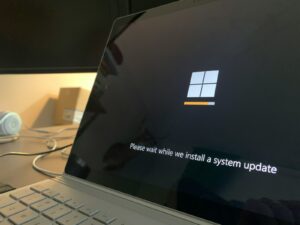NIST Tackles Vulnerability Database Backlog with Public-Private Consortium and Staff Reassignments
CISA and NIST have been busy, so let’s cover that as we look at moves by the federal government. I’ve previously discussed how The U.S. National Institute of Standards...
More from Podcast StoryMore posts in Podcast Story »
- FCC Votes to Restore Net Neutrality, Reclassifying Broadband as Essential Service
- AI’s Role in the Workplace: Enhancing Productivity Without Displacing Jobs, According to New Study
- Microsoft Urged to Rebuild Trust Amid Security Breaches and Rising Criticism
- FTC Votes to Ban Noncompete Agreements, Predicting $300 Billion Wage Increase Annually
- Apple Cuts Vision Pro Headset Forecast Amid Cooling Demand, Delays Cheaper Model

 Unlock with Patreon
Unlock with Patreon


